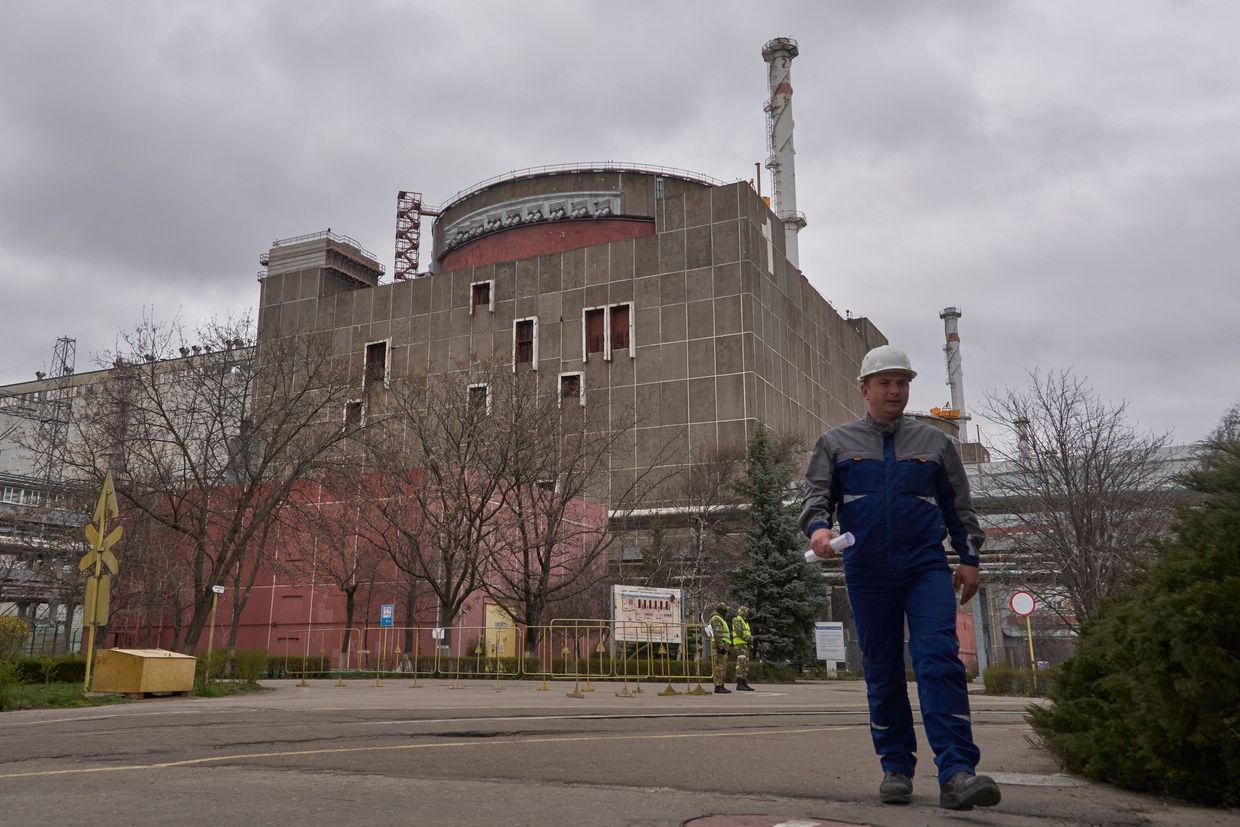New customs reform aims to tackle Ukraine’s ‘single biggest cash cow’ of corrupt money in politics
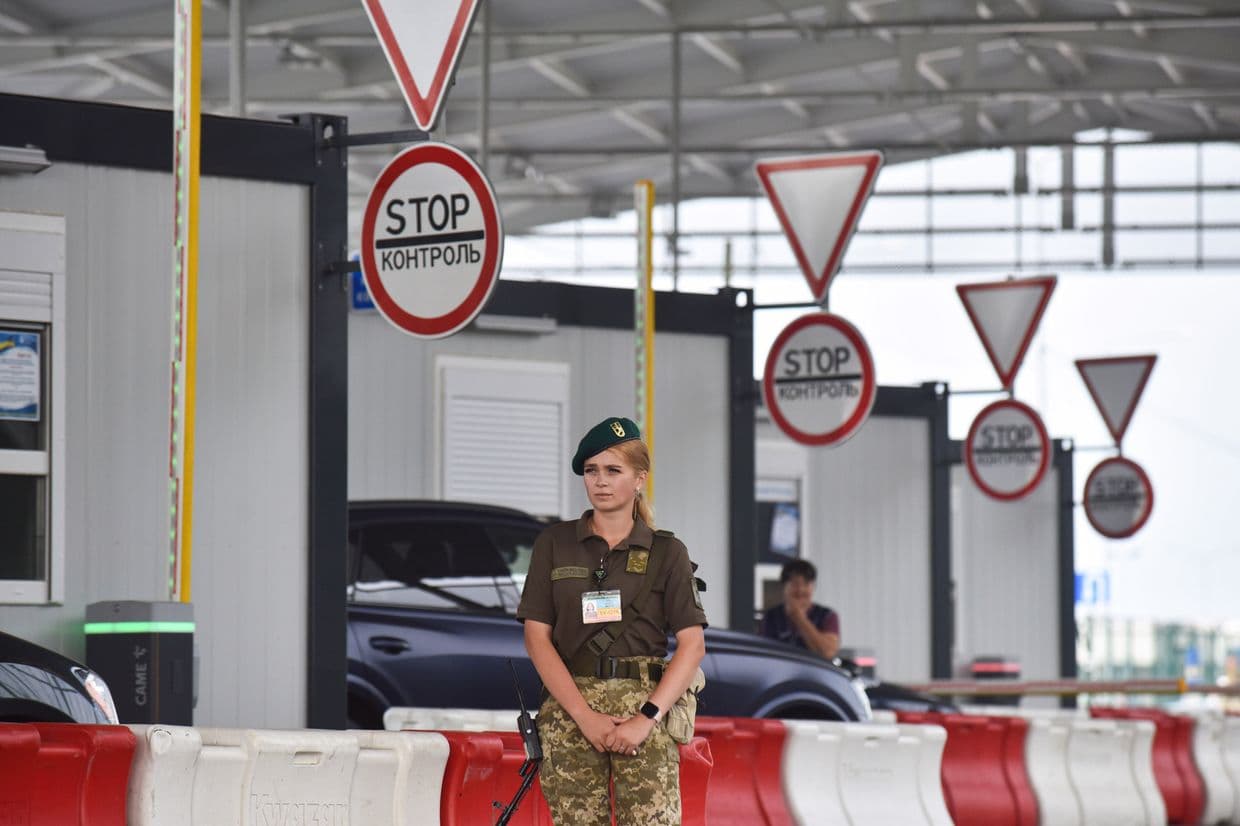
A border guard is seen at the newly renovated checkpoint on the Ukrainian-Polish border "Krakovets - Korchova" near the village of Krakovets in Lviv Oblast, Ukraine on Aug. 16, 2022. (Pavlo Palamarchuk/SOPA Images/LightRocket via Getty Images)
At a time when state coffers are starving for money to fund Ukraine’s survival, illegal smuggling is costing the country billions of dollars a year in lost tax payments.
Through bribery or lying, smugglers avoid an estimated $2.4 to $3 billion in customs payments each year as they smuggle everything from cigarettes and iPhones to perfume and food across the border undeclared or mislabeled.
Last year, the State Customs Service audited 9,000 cases of declared “humanitarian aid” entering the country and found that around a third were probably other goods falsely labeled to avoid customs fees.
Customs postings can be so lucrative that criminals are willing to shell out large sums for desirable positions: Ukraine’s anti-corruption bureau uncovered an attempt earlier this year to bribe officials with $1.7 million into appointing three regional heads of customs who would turn a blind eye to illegal schemes.
“Customs is perhaps the single biggest cash cow that brings corrupt money into Ukraine's political system. It’s the largest tax-evasion scheme in the country,” said Josh Rudolph, a senior fellow and head of the transatlantic democracy working group of the U.S.-based think tank German Marshall Fund.
The problem is so severe that Ukrainians view the State Customs Service as the most corrupt institution in the government.
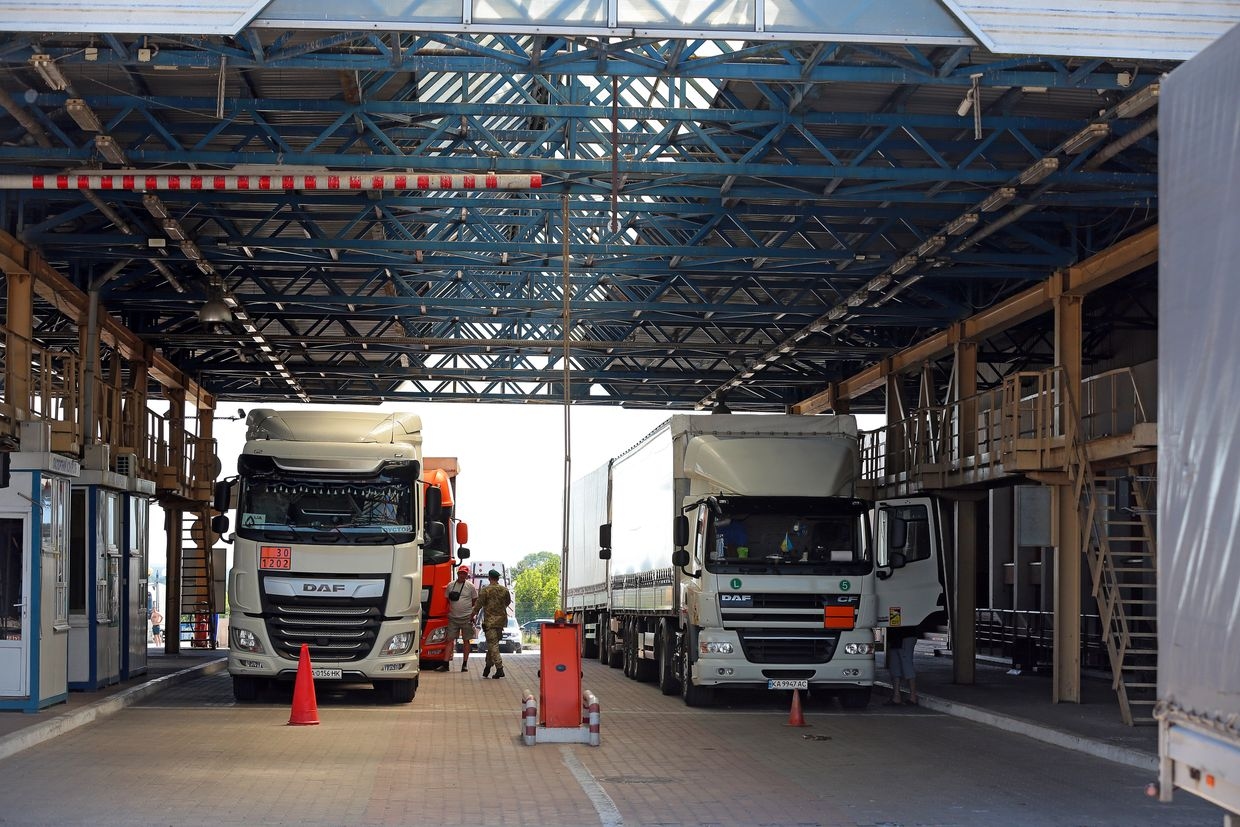
With mounting internal and external pressure on Ukraine to reign in corruption at the border, parliament has passed an extensive new reform bill to overhaul the State Customs Service. After previous failed attempts at reform, increased pressure from Western partners during the war has lent political heft to overhauling the institution.
The bill was submitted to the president on Sept. 23 and will take effect after he signs it into law, though its effects of reforms may take years to show up in the state’s budget, which is desperate for cash as Russia’s war enters its third year.
Corruption in customs “is a big challenge that requires sweeping reform, and this (bill) is a good starting place,” Rudolph said.
What the bill aims to do
The most significant change in the bill requires two candidates for the new head of the State Customs Service to be selected by an independent commission, where half the commission's members are independent foreign experts.
This style of selection process — which cuts the potential for corrupt influence on choosing appointees — is modeled after successful anti-corruption efforts to select heads of other Ukrainian agencies.
“You need not just the right people, but you also need them to know that they can make good decisions,” said Olena Shcherban, deputy executive director of the Ukrainian nonprofit Anti-Corruption Action Center (AntAC).
"You need not just the right people, but you also need them to know that they can make good decisions."
“In some cases, the (Customs Service’s) rules should be changed, but that can only happen when the head of customs won’t be politically dependent on people for the appointment.”
“When the head can’t be suddenly dismissed and won’t be dependent on the decisions of the Finance Ministry and cabinet of ministers,” Scherban said, “this is when (the head) will understand that they have an opportunity to be independent, and to rein in illegal cash flow from customs and to bring additional money to the state budget.”
A previous attempt at reforming the Customs Service stalled in 2020, after the then-head of the service Max Nefyodov was dismissed from his post.
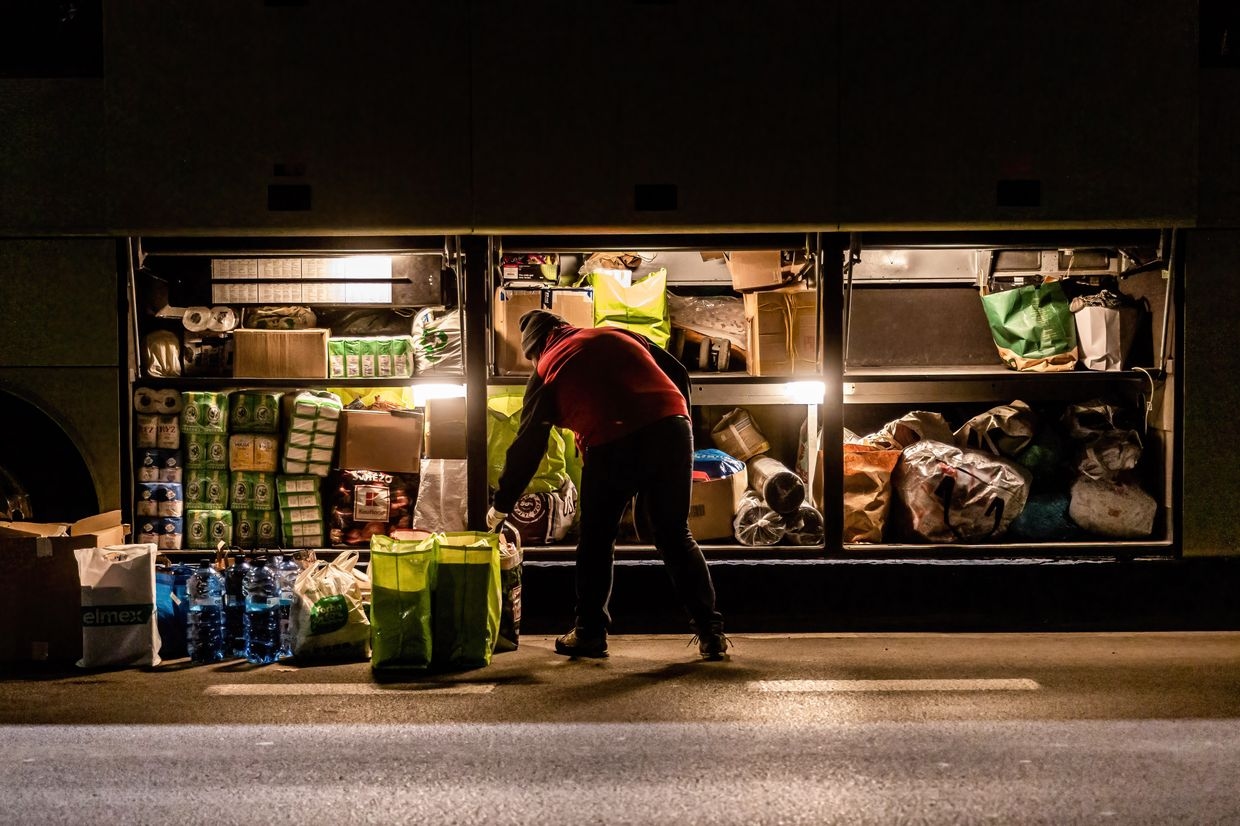
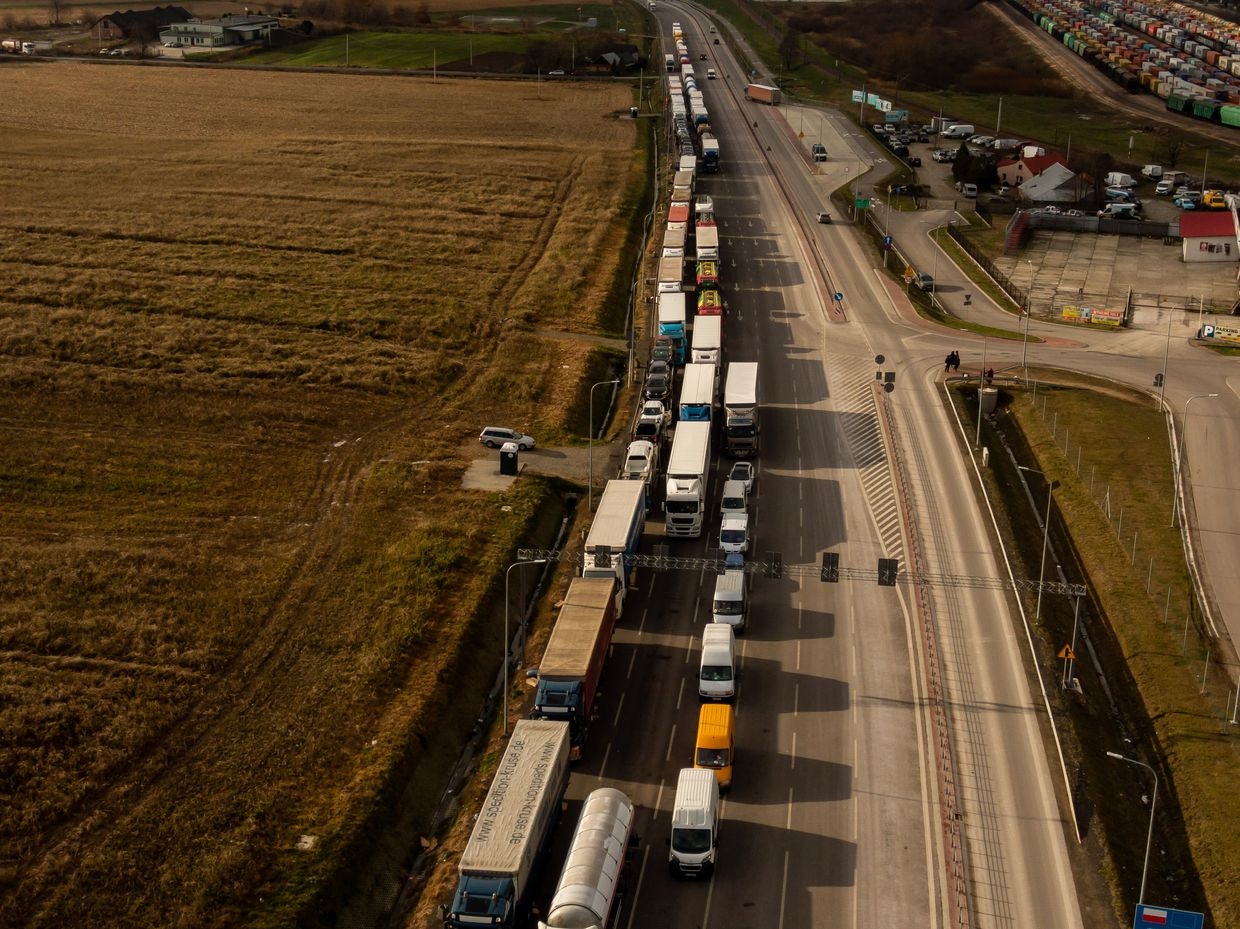
Nefyodov, who had a reputation as an effective anti-corruption reformer and implemented strong transparency policies in his previous post as a deputy economy minister, accused the government of bowing to pressure from powerful smugglers demanding his ousting. The government said that he failed to meet revenue targets.
The bill also gives the new head increased independence in choosing deputies, reduces the influence of the finance minister, provides for independent audits carried out by international experts, and requires a one-time recertification process to vet all current department employees.
The vetting will look at the integrity of approximately 9,700 current employees and examine the legality of their finances and sources of income. It is expected to take years to complete.
“You have this saying in the United States that ‘personnel is policy,’” said Rudolph of the German Marshall Fund. “It’s going to be a long, challenging process, but I would not underestimate bringing in genuinely new blood and enabling the removal of anyone who’s not going to be contributing meaningfully to reform.”
‘We need resources’
The economic realities of Russia’s invasion heightened the urgency of this major overhaul and made it possible, said the main author of the reform bill, Yaroslav Zhelezniak, lawmaker and first deputy head of Ukraine's Parliamentary Committee on Finance, Tax, and Customs Policy.
“We need resources to fund our war from taxes and customs. If something is broken, you have to fix it,” Zhelezniak told the Kyiv Independent.
“Not everyone in the government supported it, to be honest,” he said, “but due to strong support from the speaker of parliament and the head of the coalition and prime minister, we pushed it through parliament.”
The bill also received a significant boost after foreign partners included it in required reforms linked to foreign aid. Customs reform is one of the necessary steps Ukraine needs to tackle by the end of this month, in order to meet IMF benchmarks to secure the next round of the IMF’s $15 billion loan package.

Passing the final version of the bill “became possible because the IMF, World Bank, and the U.S. included it in their obligations,” Zhelezniak noted. “The statistic for all obligations connected with receiving money is very simple: 100% of them have been approved. So, there is zero chance for failure when there is a financial obligation.”
The reforms are also necessary for Ukraine to enter the EU, a key goal of Ukraine as it seeks to strengthen ties with the West. Ukraine submitted its official membership bid in February 2022.
“Customs in the EU is the cornerstone of the Single Market, which is the key component of European integration,” said Igor Dankov, the customs counselor for the Foreign Ministry’s Mission of Ukraine to the European Union.
“EU customs administrations act as one, and Ukraine's Customs should belong to the EU Customs family. Customs need to strengthen its security functions and be prepared to operate at external borders of the EU. That is why we need reform.”
Business Pressure
Major business associations had also championed this bill, pressuring the government to raise revenue from illegal markets after the government moved to raise taxes on legal businesses.
With Ukraine facing a $35 billion budget deficit next year, customs reform was an attempt to mitigate the unpopularity of the country’s first wartime tax hike.
“I would say that this situation with the budget was one of the political enablers for this reform to actually be voted on. Because there is huge pressure from people and from businesses to actually not only raise tax rates but to work on more even tax compliance and on leveling the field,” Yurii Gaidai, senior economist at the Kyiv-based Center for Economic Strategy (CES), told the Kyiv Independent last month.
"There is huge pressure from people and from businesses to actually not only raise tax rates but to work on more even tax compliance and on leveling the field."
“The big business pushback helped put these new (custom) reforms into play,” he said.
Customs reform has long been a goal of Ukraine’s business community. Before the full-scale invasion, a 2019 survey by the American Chamber of Commerce in Ukraine (AmCham) found that 76% of its members believed customs reform should be the top priority for Ukraine’s parliament and government.
The majority named anti-corruption efforts as the reason. The chamber surveyed hundreds of its members engaging in international trade, which include many of Ukraine’s largest employers.
“The effective operation of customs facilitates trade simplification, reduces costs and delays at the border, and enhances competitiveness and the overall business climate,” Vita Miroshnychenko, head of customs and international trade of PwC Ukraine and a co-chair of AmCham Customs Committee, told the Kyiv Independent.
During wartime, effective customs work also smooths the transit of humanitarian aid and defense goods, she added.
Only a first step
After the president signs the law, it will take time to see results. The law provides two months for a selection committee to be formed, and up to three years for the re-certifications to be carried out.
“Even if it goes as fast and well as possible, I would not expect to have any fiscal results in the coming budget year,” said Gaidai from CES.
“I would even say that if it’s really done properly, we could expect some decrease in tax revenues at first,” Gaidai said. “Because every time the previous government strived to reform the customs service, they faced sabotage from corrupt people there.”
Sabotage or undue influence is possible again, said AntAC’s Scherban, but there is also a simpler challenge — finding quality talent in a war-ravaged populace.
Among other similarly structured competitions for high-ranking government officials, “we see a lack of real candidates who trust the reforms and want to apply, because of the war. Many talented professional people go to the Armed Forces,” said Scherban.
“The most key, important thing is a successful selection process for the new head of the Customs Service. All the procedures, the recertification, and so on, depend on the head. So, we will monitor the process very closely,” said Scherban.

The signing of the law can still be a powerful signal that change is coming, forcing employees to adjust their expectations and behavior, Zhelezniak noted, citing the experience of similar reforms to other Ukrainian institutions.
But it is still only one step of many, Zhelezniak said, adding that he plans to continue working on future reforms that will digitize the agency, reduce opportunities for human interference, bring the agency closer in line with EU customs requirements, and secure the budget to raise salaries and attract better talent.
“Customs is not technocratic reform,” Zhelezniak said. “It's not where you implement one process or one new department and you solve the problem. There are thousands of people on the border who every day, every hour, have to do their job. There is no way to decrease corruption or make it disappear without changing the minds and approaches of these people.”

